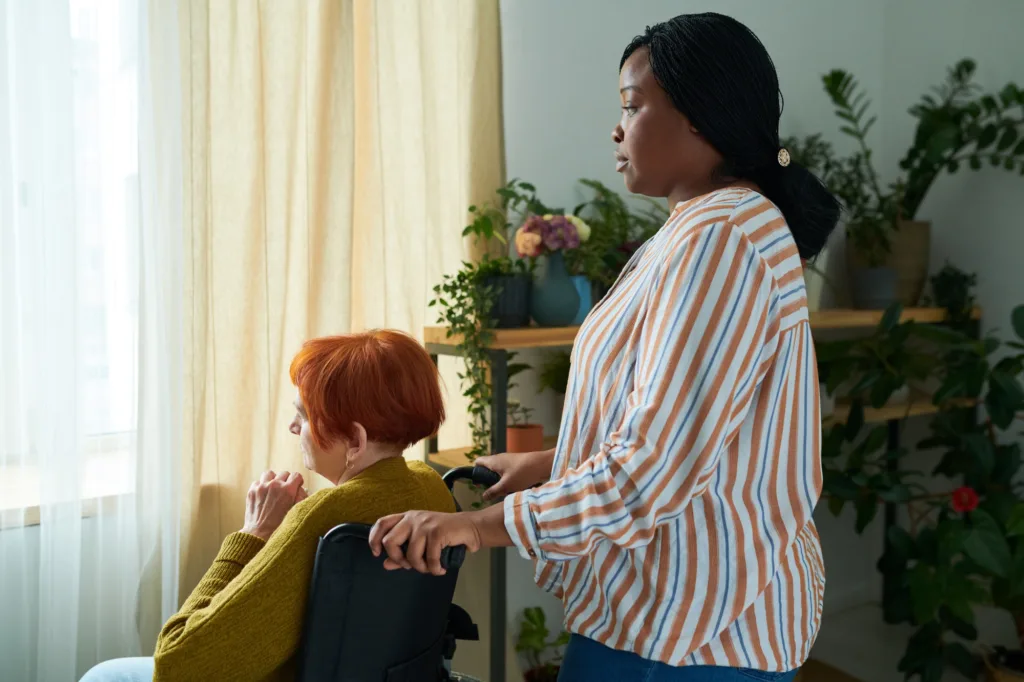Some of the symptoms of caregiver burnout might be alleviated with respite care. Different types of respite care can meet a variety of care needs.Â
In this comprehensive guide, we’ll delve into the world of respite care in Pittsburgh. We also learned its basics and its services and provided helpful ideas for caregivers.
The Basics of Respite Care
Respite care is a type of short-term substitute care that offers caregivers momentary relief. These little pauses from caregiving activities can be critical for caregivers, who have many responsibilities, some of which are extremely stressful. Longer-term respite alternatives range from a few weeks to a month.
No matter how long a period of respite care is pursued, the idea is to offer caregivers time away from their obligations to focus on themselves. Some caregivers may seek respite in order to work outside the home or complete personal duties and errands. Respite care assists unpaid caregivers in achieving more balance in their lives. It is very useful in an emergency.
Types of Respite Care
There are numerous respite care choices available. The best one for you will be determined by your circumstances and the demands of your loved one. If you have trusted friends and family members, informal respite care may be an option for you. We outline some of the most prevalent types of respite care and who they may be appropriate for below.
Adult Day Care
Adult daycare services are available in a variety of venues. According to the CDC, there are roughly 4,600 adult daycare centers in the United States. These facilities provide daytime caregiving services for caregivers who need to work outside the home. The facilities provide a safe atmosphere for elders to socialize with their peers. Personal care services and help include enjoyable activities meant to keep people engaged. Adult daycare respite services are ideal for caregivers. It can also be a valuable source of sociability for everyone.
Professional In-Home Care
To provide respite care, families might collaborate with professional in-home caregivers. Skilled in-home caregivers can offer care as needed or on a set schedule, such as two days per week. In-home respite care can be beneficial for caregivers who work outside the home and do not want to leave their elderly loved ones alone at home.
In-home aides are trained to conduct caring tasks such as toileting, grooming, and mobility assistance. Caregivers who require higher-level medical assistance, such as medication administration, might consider hiring a home healthcare helper. In comparison to typical in-home caregivers, home healthcare professionals have enhanced training and certification to provide greater medical care.
Residential Respite Care
Some senior living communities provide short-term overnight services. A specified number of beds in some long-term care institutions are reserved solely for short-term respite stays. For caregivers who need to travel out of town, this alternative can be a fantastic stress reliever. Because not all residential care communities provide respite, it is important to plan ahead of time and locate a community in your neighborhood.
Respite Care Services in Pittsburgh
Respite Care Pittsburgh provides a variety of services that can be tailored to the specific needs of each client. Whether a senior requires pharmaceutical assistance or simply some supervision and companionship, respite care workers can provide the degree of care required. Respite care providers provide the following services:
Companionship and supervision
If your loved one performs well but you are concerned about leaving them at home alone, respite care in Pittsburgh can provide supervision and companionship.
Activities of Daily LivingÂ
Activities of daily living (ADLs) are daily actions that everyone must complete, such as clothing, bathing, and eating. Almost all respite care providers give ADL assistance as a regular service.
Primary Medical Care
Most respite care providers are trained to provide basic medical care, such as wound care and prescription administration. If your loved one requires medical treatment that goes beyond the fundamentals, work with a practitioner who has more advanced medical training.
Household chores
Basic home duties such as laundry, grocery shopping, and light cleaning can be completed by respite care professionals.
Transportation
Some respite care staff can help your loved one get to appointments or run vital errands by providing transportation.
Meals
Respite caregivers in Pittsburgh can prepare meals and assist your loved one in eating.
Personal Attention
Respite care in the home is one-on-one between the senior and the caregiver. Seniors receive personalized care, and the caregiver is completely focused on your loved one and their requirements.
Final Thoughts
This comprehensive guide seeks to provide caregivers in Pittsburgh with the knowledge and resources they need to make informed respite care selections. Remember that looking after yourself is an important component of providing exceptional care for your loved ones. Respite care in Pittsburgh might help you achieve that balance.

